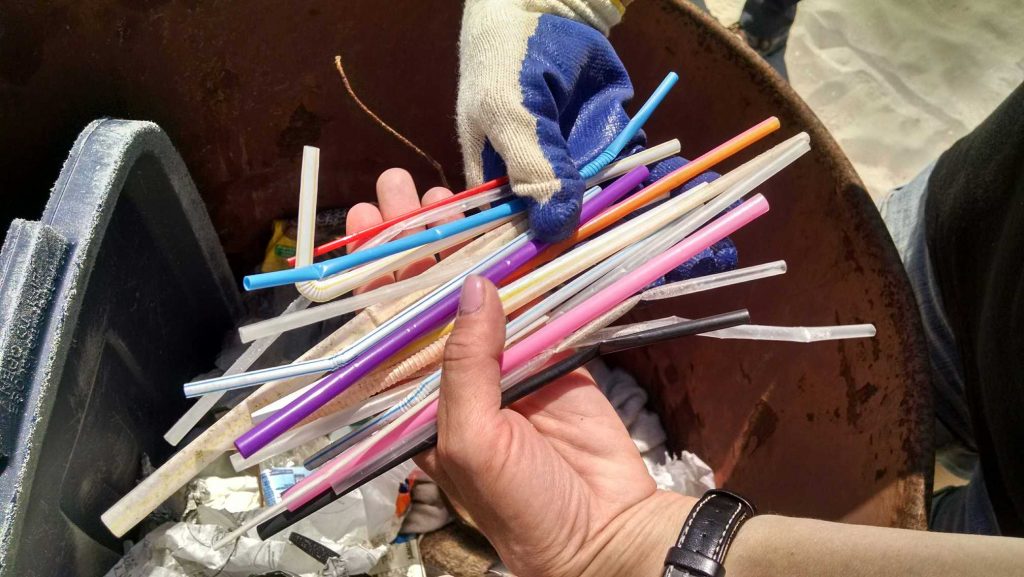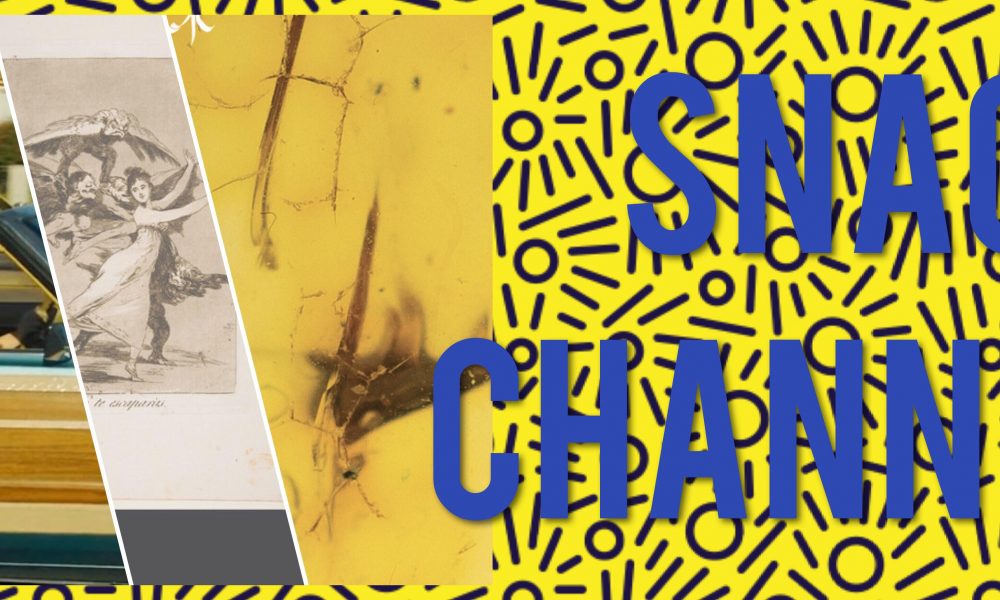Last August, Rob DiGiovanni from the Atlantic Marine Conservation Society (AMCS) embarked on a boating trip to watch dolphins. Instead, he found a balloon floating in the ocean emblazoned, “Happy Father’s Day!” In the same 30-minute trip, he picked up seven pounds of garbage.
He presented a picture of the balloon at a panel on Suffolk County plastic use in Huntington on April 25. The panel included Adrienne Esposito, the executive director of Citizens Campaign for the Environment (CCE), Huntington Town Supervisor Chad Lupinacci and Wildlife Conservation Society (WCS) Manager for Government and Community Affairs Christina Manto.
AMCS has found marine animals that have ingested or been entangled in plastics across Long Island. Along with the other environmental groups present at the town hall, DiGiovanni has urged the public to stop using single-use plastics, like plastic bags.
The county passed a bill mandating that stores charge a 5-cent fee on plastic bags, which went into effect in January 2018. The bill, sponsored by Suffolk County Legislator William “Doc” Spencer, was hotly contested and received pushback from members of the community, according to Esposito.
“It was brutal for about three weeks,” she said. “Our phones were ringing off the hook. Poor Doc Spencer — he got hate mail, emails. We called it the ‘bag-apocalypse.’”
But after four weeks, Esposito said things quieted down. “People made the adjustment,” she said.
The bill has reduced plastic bag use in Suffolk County by 1.1 billion bags in one year. Last month, Suffolk banned plastic straws and Styrofoam takeout containers, mandating restaurants and other businesses to only give bamboo or paper straws when asked.
Legislator Kara Hahn of Setauket was the main sponsor of the plastic straw bill and an advocate for the plastic bag ban. “What’s really exciting about Suffolk County’s history of being a first is that often we’ll pass something in the county and the state will follow suit and pass something similar or better,” she said at a plastics panel on April 1 at Stony Brook University. New York State’s new 2019-2020 budget included a statewide ban on plastic bags and a 5-cent fee on paper bags, which Esposito said was inspired by Suffolk County’s bill.
Hahn also created a task force to analyze how effective the plastics ban was. John Turner, a Long Island environmentalist, helped the task force assess coastal and roadside cleanups. They created shopping surveys and even staked out grocery stores to see how many people stopped using plastic bags. “It really has exceeded our expectations,” Turner said at the April 1 panel.
Suffolk’s not alone, nor the first, in the fight against plastic. In 2002, Bangladesh passed the first plastic bag ban, quickly followed by 126 more countries that have taxed or banned plastic bags. California was the first state to ban them in 2014, followed by Hawaii and Rhode Island.
The United States uses one plastic bag per person, per day, and only recycles 9% of its plastic. Worldwide, 18 billion pounds of plastic end up in the ocean each year. Much of this plastic finds its way into the stomachs of marine animals. Animals ingest the plastic, thinking it’s jellyfish or other prey. If they don’t choke on it, it clogs up their stomachs and they starve to death.
Sunlight also degrades plastics in the ocean into microplastics, which contain toxins and enter the food chain. Fish containing microplastics then end up on dinner tables. Dentists have even found microplastics in teeth. Recently, scientists found microplastics in remote places of the planet with no human activity, suggesting microplastics are spreading via the wind.
Wood, bamboo and paper have been increasingly provided as alternatives to plastic. Christina Manto said the Bronx Zoo now offers wooden utensils, paper straws and no longer sells plastic water bottles. They’ve reached out to the disabled community to ensure people with disabilities who rely on straws to drink are taken into account.
Manto said bars and restaurants in New York City are interested in switching to alternatives. The WCS has partnered with the Yemeni American Merchants Association in their Give a Sip campaign. “Everyone relies on their delis and bodegas, and so many of those people are the ones that give out their iced coffee and they give you a straw,” Manto said. “They were really, really excited to engage with us and say, ‘Yeah, we’re the ones behind these counters for decades, we know how many straws we give out. This is potentially a really easy change for us.’”
Companies are also exploring alternatives to plastic water bottles. After trash collectors picked up 47,000 plastic bottles following the 2018 London Marathon, 30,000 energy drink-filled seaweed pods were handed out at 2019’s marathon rather than water bottles. It was the “largest-ever trial of the pods.”
On May 14, U.S. company TerraCycle and French company Carrefour launched a test for their “Loop” initiative in France. Loop is an online platform on which users can order products shipped in reusable containers to customers’ doors. The company will then collect empty containers to clean and reuse. They plan to launch in New York on May 21.
At the April 25 panel, the CCE handed out bags of reusable bamboo eating utensils for attendees who signed a petition to abstain from single-use plastics. They handed out fliers, set up poster boards and talked to members of the public who came to the panel.
“We’re changing the public mindset,” Esposito said. “We’re changing the public’s understanding. People understand we have to make changes, and that’s a great thing.”




Comments are closed.